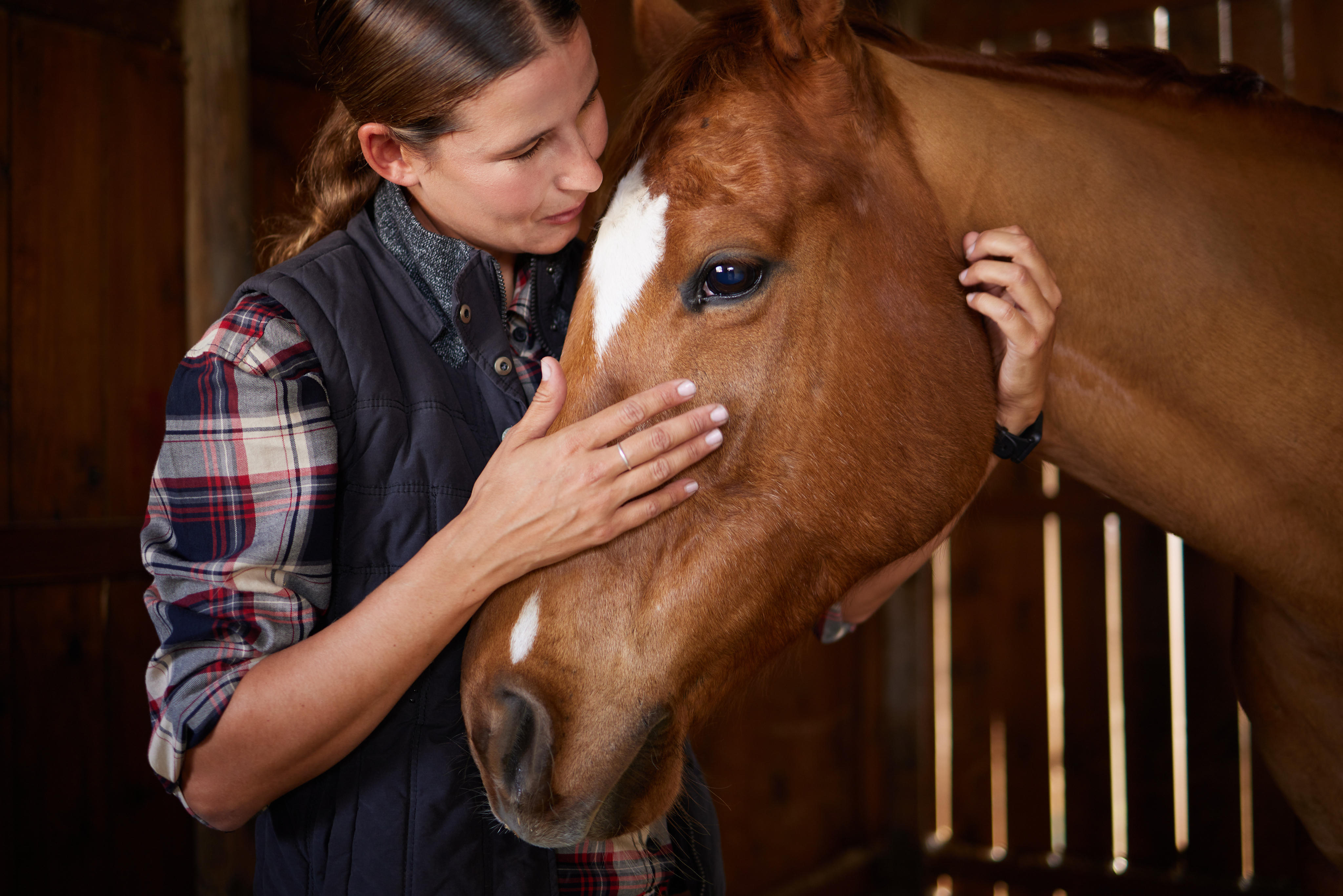Merck Animal Health Receives U.S. FDA Approval of Expanded Indication for BRAVECTO (fluralaner) Chews for Dogs
January 26, 2023
Portfolio expansion provides dogs broad-spectrum protection against Asian longhorned ticks
MADISON, N.J., Jan. 26, 2023 – Merck Animal Health, known as MSD Animal Health outside of the United States and Canada, a division of Merck & Co., Inc., Rahway, N.J., USA (NYSE:MRK), today announced the U.S. Food and Drug Administration’s approval of an expanded indication for BRAVECTO® Chews for Dogs. The new indication treats and controls Asian longhorned ticks, which are an invasive Ixodid species located across more than one-third of the U.S1,2.
BRAVECTO Chews for Dogs is the first and only U.S. product labeled for the treatment and control of Asian longhorned tick infestations. These ticks have the potential to quickly become an important tick species within pet populations and have been known to carry various viral, bacterial and protozoal agents. This product label expansion is an important addition to the company’s BRAVECTO product portfolio, which are extended duration flea and tick protection products that offer broad-spectrum, comprehensive parasite protection for dogs.
“The approval of this additional BRAVECTO use builds on the strong foundation and body of scientific evidence that we have established over the years with our broad-spectrum comprehensive line of parasite protection products,” said Holger Lehmann, DVM, PhD, vice president, Pharmaceutical Research and Development, Merck Animal Health. “With BRAVECTO’s new indication in Asian longhorned ticks, we have expanded our portfolio with an important claim in the fight against parasites, as well as provided dogs with flea and tick protection that delivers immediate and persistent killing activity.”
BRAVECTO Chews for dogs is indicated for the treatment and prevention of flea infestations (Ctenocephalides felis), treatment and control of tick infestations (Ixodes scapularis (black-legged tick), Dermacentor variabilis (American dog tick), Rhipicephalus sanguineus (brown dog tick)] and Haemaphysalis longicornis (Asian longhorned tick) for 12 weeks and treatment and control of Amblyomma americanum (lone star tick) infestations for 8 weeks.
“Parasites pose serious animal and human health risks as fleas and ticks can transmit disease agents,” said Kathryn Duncan, DVM, PhD, DACVM, parasitology field specialist, Merck Animal Health. “Protection against the Asian longhorned tick is critical because its prevalence is increasing throughout the country. This expanded indication from Merck Animal Health represents a scientific milestone in our continued commitment to providing the highest level of proven treatments in battling parasites faced by our pets.”
BRAVECTO Chews for Dogs is part of the Merck Animal Health Companion Animal portfolio, which includes a broad range of veterinary medicines and vaccines, as well as the SURE PETCARE™ brand platform of digitally connected products along with the HomeAgain® brand-leading service provider in pet recovery.
BRAVECTO Chews for Dogs is available in five strengths (112.5, 250, 500, 1000, and 1400 mg fluralaner) per chew. To learn more about BRAVECTO and our innovative flea and tick treatments, visit us.bravecto.com.
Important Safety Information
BRAVECTO 1-MONTH Chews: indicated for dogs 8 weeks of age and older. The most commonly reported adverse reactions include itching, diarrhea, vomiting, decreased appetite, elevated ALT, lethargy, and weight loss. BRAVECTO 1-MONTH is not effective against A. americanum in puppies less than 6 months of age. BRAVECTO Chews for Dogs: The most commonly reported adverse reactions include vomiting, lethargy, diarrhea, anorexia and pruritus. In some cases, adverse events have been reported following use in breeding females. BRAVECTO Topical Solution for Dogs: The most commonly reported adverse reactions include vomiting, hair loss, diarrhea, lethargy, decreased appetite, and moist dermatitis/rash. BRAVECTO Topical Solution for Cats: The most commonly reported adverse reactions include vomiting, itching, diarrhea, hair loss, decreased appetite, lethargy, and scabs/ulcerated lesions. BRAVECTO Topical Solution for Cats is not effective against American dog ticks beyond 8 weeks of dosing. BRAVECTO PLUS Topical Solution for Cats: The most commonly reported adverse reactions include vomiting, hair loss, itching, diarrhea, lethargy, dry skin, elevated ALT, and hypersalivation. BRAVECTO PLUS has not been shown to be effective for 2 months in kittens less than 6 months of age. Use with caution in cats that are heartworm positive. The effectiveness of BRAVECTO PLUS to prevent heartworm disease after bathing or water immersion has not been evaluated.
BRAVECTO has not been shown to be effective for 12-weeks’ duration in puppies or kittens less than 6 months of age. BRAVECTO Chews and Topical Solution for dogs is not effective against the lone star tick beyond 8 weeks of dosing. BRAVECTO Topical Solution for Dogs and Cats and BRAVECTO PLUS for cats are for topical use only. Avoid oral ingestion. The safety of BRAVECTO Topical Solution for Cats and BRAVECTO PLUS has not been established in breeding, pregnant, and lactating cats.
All BRAVECTO products contain fluralaner, which is a member of the isoxazoline class. This class has been associated with neurologic adverse reactions including tremors, ataxia, and seizures. Seizures have been reported in dogs receiving isoxazoline class drugs, even in dogs without a history of seizures. Use with caution in dogs with a history of seizures or neurologic disorders. Neurologic adverse reactions have been reported in cats receiving isoxazoline class drugs, even in cats without a history of neurologic disorders. Use with caution in cats with a history of neurologic disorders.
About BRAVECTO®
Since its introduction in 2014, BRAVECTO has provided longer-lasting flea and tick protection, with more than 250 million doses distributed in 85 countries over eight years. BRAVECTO is available in a variety of formulations, including products for both dogs and cats.
The flea lifecycle can last as long as 12 weeks, and monthly treatments may leave gaps in protection. Providing pets with continuous flea and tick protection is essential – whether the pet goes outside or not. Contrary to popular belief among pet owners, fleas and ticks are not only active in the spring and summer months and are a year-round risk. Fleas and ticks can easily latch onto dogs and cats, and can spread serious diseases. Fleas are the most common external parasite found on pets. BRAVECTO products are only available through licensed veterinarians.
About Merck Animal Health
At Merck, known as MSD outside of the United States and Canada, we are unified around our purpose: We use the power of leading-edge science to save and improve lives around the world. For more than a century, we’ve been at the forefront of research, bringing forward medicines, vaccines and innovative health solutions for the world’s most challenging diseases. Merck Animal Health, a division of Merck & Co., Inc., Rahway, N.J., USA, is the global animal health business of Merck. Through its commitment to The Science of Healthier Animals®, Merck Animal Health offers veterinarians, farmers, pet owners and governments one of the widest ranges of veterinary pharmaceuticals, vaccines and health management solutions and services as well as an extensive suite of connected technology that includes identification, traceability and monitoring products. Merck Animal Health is dedicated to preserving and improving the health, well-being and performance of animals and the people who care for them. It invests extensively in dynamic and comprehensive R&D resources and a modern, global supply chain. Merck Animal Health is present in more than 50 countries, while its products are available in some 150 markets. For more information, visit www.merck-animal-health.com and connect with us on LinkedIn, Facebook, Twitter and Instagram.
Forward-Looking Statement of Merck & Co., Inc., Rahway, N.J., USA
This news release of Merck & Co., Inc., Rahway, N.J., USA (the “company”) includes “forward-looking statements” within the meaning of the safe harbor provisions of the U.S. Private Securities Litigation Reform Act of 1995. These statements are based upon the current beliefs and expectations of the company’s management and are subject to significant risks and uncertainties. If underlying assumptions prove inaccurate or risks or uncertainties materialize, actual results may differ materially from those set forth in the forward-looking statements.
Risks and uncertainties include but are not limited to, general industry conditions and competition; general economic factors, including interest rate and currency exchange rate fluctuations; the impact of the global outbreak of novel coronavirus disease (COVID-19); the impact of pharmaceutical industry regulation and health care legislation in the United States and internationally; global trends toward health care cost containment; technological advances, new products and patents attained by competitors; challenges inherent in new product development, including obtaining regulatory approval; the company’s ability to accurately predict future market conditions; manufacturing difficulties or delays; financial instability of international economies and sovereign risk; dependence on the effectiveness of the company’s patents and other protections for innovative products; and the exposure to litigation, including patent litigation, and/or regulatory actions.
The company undertakes no obligation to publicly update any forward-looking statement, whether as a result of new information, future events or otherwise. Additional factors that could cause results to differ materially from those described in the forward-looking statements can be found in the company’s Annual Report on Form 10-K for the year ended December 31, 2021 and the company’s other filings with the Securities and Exchange Commission (SEC) available at the SEC’s Internet site (www.sec.gov).
- Raghaven et al (Potential Spatial Distribution of the Newly Introduced Long-horned Tick, Haemaphysalis longicornis in North America).
- United States Department of Agriculture (USDA) National Haemaphysalis longicornis (Asian longhorned tick) Situation Report.




 Go To United States
Go To United States Algeria
Algeria Argentina
Argentina Australia
Australia Austria
Austria Bahrain
Bahrain Belgium (Dutch)
Belgium (Dutch) Brazil
Brazil Canada (English)
Canada (English) Chile
Chile Colombia
Colombia Croatia
Croatia Czech Republic
Czech Republic Denmark
Denmark Ecuador
Ecuador Egypt
Egypt Finland
Finland France
France Germany
Germany Greece
Greece Hungary
Hungary India
India Indonesia
Indonesia Iraq
Iraq Ireland
Ireland Israel
Israel Italy
Italy Japan
Japan Jordan
Jordan Kuwait
Kuwait Lebanon
Lebanon Malaysia
Malaysia Mexico
Mexico Morocco
Morocco Netherlands
Netherlands New Zealand
New Zealand Norway
Norway Oman
Oman Panama
Panama Peru
Peru Philippines
Philippines Poland
Poland Portugal
Portugal Qatar
Qatar Romania
Romania Russian Federation
Russian Federation Saudi Arabia
Saudi Arabia South Africa
South Africa South Korea
South Korea Spain
Spain Sweden
Sweden Switzerland (French)
Switzerland (French) Taiwan
Taiwan Thailand
Thailand Tunisia
Tunisia Turkey
Turkey Ukraine
Ukraine United Arab Emirates
United Arab Emirates United Kingdom
United Kingdom Uruguay
Uruguay Yemen
Yemen Global
Global